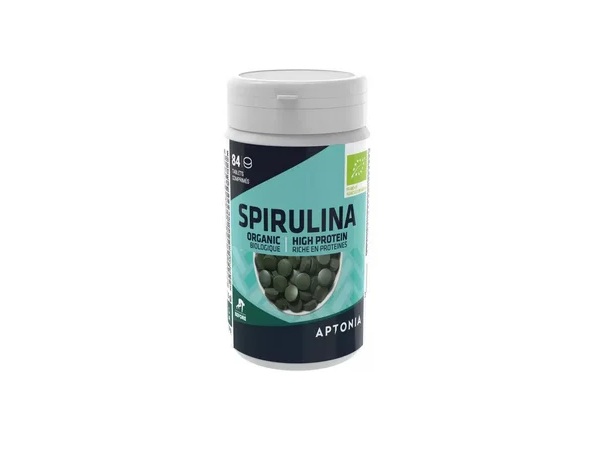In the world of nutritional supplements, few hold as much promise and potential as spirulina. Derived from blue-green algae, spirulina has gained popularity as a superfood supplement, renowned for its rich nutrient profile and numerous health benefits. From boosting immunity to supporting cardiovascular health, spirulina offers a plethora of advantages for those seeking to enhance their overall well-being. In this comprehensive guide, we delve into the various benefits of spirulina supplements, exploring its nutritional content, therapeutic properties, and practical applications in promoting optimal health.
Understanding Spirulina: Nature’s Superfood
Spirulina, scientifically known as Arthrospira platensis, is a spiral-shaped, microscopic cyanobacterium that thrives in alkaline lakes and ponds with high concentrations of minerals. It has been consumed for centuries by various cultures around the world, particularly in Africa and Central America, both for its nutritional value and purported medicinal properties. Spirulina is densely packed with essential nutrients, including proteins, vitamins, minerals, antioxidants, and phytonutrients, making it one of the most nutrient-dense foods on the planet.
Nutritional Composition of Spirulina
One of the primary reasons for the popularity of spirulina supplements is its exceptional nutritional content. Spirulina is an excellent source of complete protein, containing all essential amino acids in proportions ideal for human health. It is particularly rich in phycocyanin, a unique pigment with powerful antioxidant and anti-inflammatory properties. Additionally, spirulina is a good source of vitamins B1, B2, B3, B6, B9 (folate), C, D, and E, as well as minerals such as iron, magnesium, potassium, manganese, and zinc. Furthermore, it contains essential fatty acids, including gamma-linolenic acid (GLA), which has been associated with various health benefits.
Health Benefits of Spirulina Supplements
Immune Support
Spirulina is renowned for its immune-boosting properties. Its high concentration of antioxidants, including phycocyanin and beta-carotene, helps neutralize free radicals and reduce oxidative stress, thereby enhancing immune function and resilience against infections.
Anti-Inflammatory Effects
Chronic inflammation is a key driver of many diseases, including cardiovascular disorders, diabetes, and autoimmune conditions. Spirulina contains potent anti-inflammatory compounds that can help alleviate inflammation and promote overall health.
Cardiovascular Health
Regular consumption of spirulina supplements has been linked to improvements in cardiovascular health. It helps lower blood pressure, reduce LDL cholesterol levels, and improve lipid profiles, thereby reducing the risk of heart disease and stroke.
Detoxification
Spirulina’s unique composition enables it to bind to heavy metals and toxins in the body, facilitating their elimination through the digestive tract. This detoxifying effect can help protect against heavy metal toxicity and environmental pollutants.
Energy and Endurance
Due to its high protein content and diverse array of nutrients, spirulina is a natural energy booster. It enhances stamina, endurance, and physical performance, making it popular among athletes and fitness enthusiasts.
Weight Management
Incorporating spirulina supplements into a balanced diet may aid in weight management and appetite control. Its nutrient density helps satisfy hunger and reduce cravings, while its metabolism-boosting properties support fat loss.
Blood Sugar Regulation
Studies suggest that spirulina may help regulate blood sugar levels and improve insulin sensitivity, making it beneficial for individuals with diabetes or those at risk of developing the condition.
Brain Health
The antioxidants and neuroprotective compounds found in spirulina may support brain health and cognitive function. They help protect against neurodegenerative diseases, improve memory, and enhance mental clarity.
Skin Health
Spirulina’s antioxidant and anti-inflammatory properties extend to skin health as well. It helps combat oxidative stress, reduce acne inflammation, and promote a clearer, more radiant complexion.
Nutritional Support
Spirulina supplements can serve as a convenient and potent source of essential nutrients, especially for individuals following vegetarian or vegan diets, as well as those with limited access to fresh produce.
Practical Considerations and Usage
When incorporating spirulina supplements into your daily routine, it’s essential to choose high-quality products from reputable sources to ensure purity and potency. Spirulina supplements are available in various forms, including powders, tablets, and capsules, making it easy to integrate into your diet. It’s advisable to start with a low dosage and gradually increase it as tolerated, as some individuals may experience mild gastrointestinal discomfort initially.
Spirulina can be consumed on its own by mixing it into smoothies, juices, or water, or incorporated into recipes for soups, salads, dips, and desserts. Its earthy flavor may not appeal to everyone, but blending it with flavorful ingredients can mask its taste while maximizing its nutritional benefits.
Potential Side Effects and Precautions
While spirulina is generally considered safe for most people when taken in appropriate doses, some individuals may experience mild side effects, such as digestive upset, headaches, or allergic reactions. Those with specific health conditions, such as phenylketonuria (PKU), autoimmune disorders, or iodine allergies, should exercise caution or consult a healthcare professional before using spirulina supplements.
Pregnant and breastfeeding women should also seek medical advice before incorporating spirulina into their regimen, as its safety during pregnancy and lactation has not been conclusively established.
Conclusion
Spirulina supplements offer a myriad of health benefits, thanks to their exceptional nutritional profile and therapeutic properties. From strengthening the immune system to supporting cardiovascular health, spirulina’s versatile benefits make it a valuable addition to any wellness routine. By harnessing the power of this natural superfood, individuals can optimize their health and vitality, paving the way for a happier, healthier life. However, it’s essential to approach supplementation mindfully, considering individual needs, potential side effects, and quality considerations. With proper use and moderation, spirulina can be a powerful ally in achieving and maintaining optimal health and well-being.
- Benefits of Iodine Supplements - March 30, 2024
- Benefits of Hops Supplements - March 30, 2024
- Benefits of Spirulina Supplements - March 22, 2024

